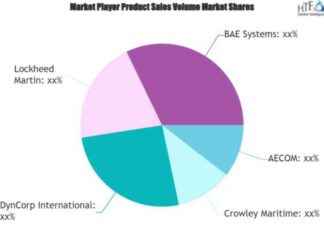The World Cup from the national team also has consequences for the economy. Supplier Adidas is already pushing the jerseys of the DFB kickers onto the rest ramp, while gastronomy and retail have to focus on the Christmas season again instead of on football hype.
Then there were only three. After the early elimination of the German national team, Adidas has one iron less in the fire at the World Cup in Qatar. Of the seven teams that competed in Adidas jerseys, the co-favorites Spain and Argentina and outsiders Japan are in the round of 16, three others have already been eliminated along with Germany.
World market leader Nike, on the other hand, has nine of its 13 national teams in the round of the top 16, one can still be added in the last preliminary round games on Friday with South Korea. Of the six Puma teams, Senegal and Morocco have already qualified, two others still had good chances this Friday.
Jerseys of the German national team, which was defeated by Spain and Japan on Thursday, were sold in the Adidas online shop with a 50 percent discount – the simpler fan jersey for 45 instead of 90 euros, the real jersey that the players also wear, for 70 instead of 140 euros.
“We are absolutely satisfied with the World Cup business,” said an Adidas spokesman in Doha. “As much as we are affected by the elimination in Germany, we are benefiting from the international enthusiasm in Qatar.” Adidas is one of the seven global partners of the world football association Fifa. The spokesman said that the goal set by ex-CEO Kasper Rorsted to sell products related to the World Cup – from the official World Cup ball “Al-Rihla” to fan jerseys – will remain at 400 million euros. Sales are currently higher than those at the 2018 World Cup in Russia. In the first nine months, Adidas had increased sales in football by 30 percent, despite benefiting from the European Championship in the summer of 2021.
The German retail trade, on the other hand, is finally disillusioned. “The early departure of the German national team brings an already difficult World Cup business to an early end for retailers,” said Stefan Hertel, spokesman for the German Retail Association (HDE). Qatar as a location and the date in winter would not have sparked any enthusiasm from the start. “Without the German team, experience has shown that interest in fan merchandise and other World Cup items will drop rapidly,” said Hertel.
“Of course, leaving is bitter – for the players as well as for our companies, who have invested in transmission options for community cheering,” said the general manager of the German Hotel and Restaurant Association (DEHOGA), Ingrid Hartges. They are now consoling themselves with the growing demand for Christmas parties – even if the level before the Corona crisis has not yet been reached.
However, economic experts do not expect any major dampening of the buying mood. “We see a major reason in the fact that the euphoria this year was not nearly as pronounced as at previous events,” said GfK market researcher Rolf Bürkl.
In Japan, on the other hand, the enthusiasm about the unexpected entry into the round of 16 has a direct impact on the stock market. Abema streaming platform operator CyberAgent was the biggest gainer on the Tokyo Stock Exchange, up 4 percent, while the Nikkei index fell 1.6 percent. The game against Germany (2-1) was watched by more than ten million viewers there, and even higher numbers were expected for the game against Spain.
In Germany, 17.4 million television viewers watched the 4-2 victory over Costa Rica on ARD. According to a spokesman, the sporting goods manufacturer Mizuno, whose shoes bear the Japanese “Samurai Blue”, sold more than twice as many football shoes in its two stores in the past ten days, and even 140 percent more online. Above all, the special edition for the national team is in demand.






